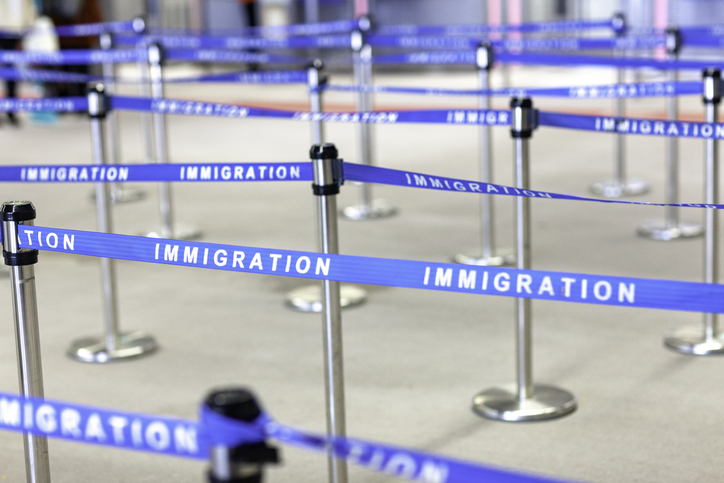Immigration updates
Imelda Reddington gives an update on all noteworthy immigration issues.
New rules for British Citizens travelling to Europe from 1 January 2021
British passport holders must have at least 6 months on their current passport to travel to most European countries. Passports issued for more than 10 years will not be valid beyond the 10-year limit (those extra months that may have been added will be deducted by most EU authorities). British Citizens can continue to use the burgundy passport until it expires, however new blue passports will be issued from March 2020 (or until stocks of the old burgundy documents have diminished).
New immigration system from 1 January 2021
The new points-based system to commence on 1 January 2021 will impact all migrants coming from overseas including European citizens.
The new rules include a lower salary threshold for skilled workers reducing the current level from £30,000 to £25,600 for most roles. Lower salaries will be considered for PhD or shortage occupation roles when assessing points for the visa route.
The skill level for vacant roles to be filled by a migrant will be A level as opposed to the current degree level and English language evidence will remain mandatory for skilled roles. Exceptions may apply to intra company workers, but no guidance is available on this just yet.
Employers who want to employ skilled workers from overseas (including from Europe from January 2021) should consider registering with the Home Office for a sponsor licence. There will be no route to the UK for unskilled workers, so UK employers must think about whether they can upskill existing employees or find suitable workers from the UK resident market to fill vacancies. Employers must be prepared to cope without labour access to the EU and put in place measures to fill vacancies by other means.
Home Office registered sponsors impact of COVID-19
The COVID-19 virus is affecting all major economies across the globe. The ability for workers to cross borders for employment, meetings and visits has been curtailed. It is particularly important for employers in the UK who sponsor migrants under the sponsorship schemes to be aware of their duties associated with reporting details to the Home Office within the relevant timescales.
It is reported that many businesses are cancelling overseas travel, meetings across sites, public meetings and in many cases facilitating their staff to work from home. Therefore, any registered sponsors will need to ensure they remain compliant with their sponsor licence duties throughout this period.
Sponsors must report changes to the sponsored migrant’s place of work if the employee has been asked to work from home or remain in self-isolation. If there is reduced pay as a result of not working, causing a reduction in the migrant’s salary, this too needs to be reported as a change in the migrant’s circumstances.
These are only some examples of the many potential and wide-ranging considerations when deciding how businesses will respond to the outbreak.
The Home Office has published several policy concessions to assist businesses during this period, but to date these are mainly for Chinese nationals and residents and apply only until end of March 2020. We cannot anticipate how long COVID-19 will impact travel, however, we expect that further guidance will be available in due course.
Field Seymour Parkes are equipped to advise on all aspects of inbound immigration to the UK and staff mobility across Europe. Please contact us if you require assistance.

